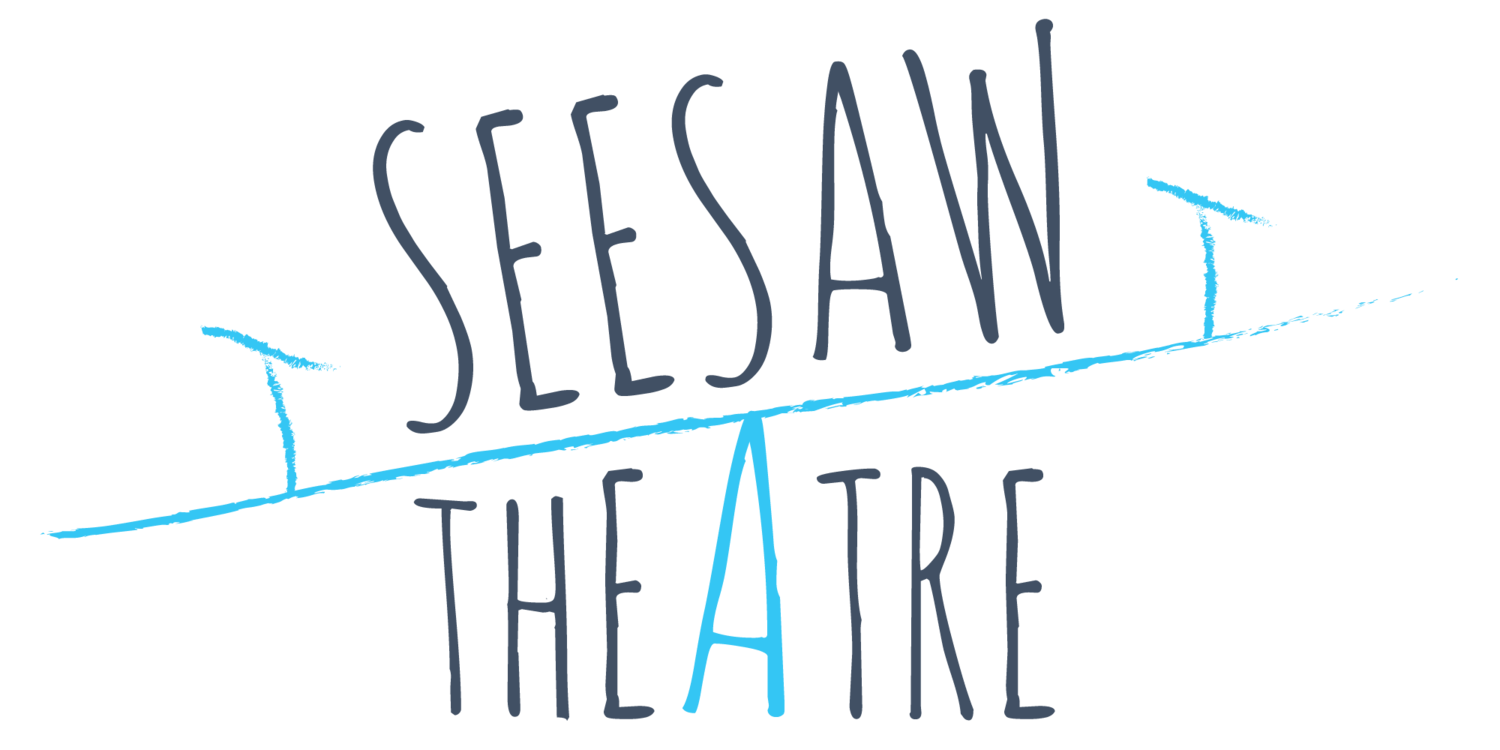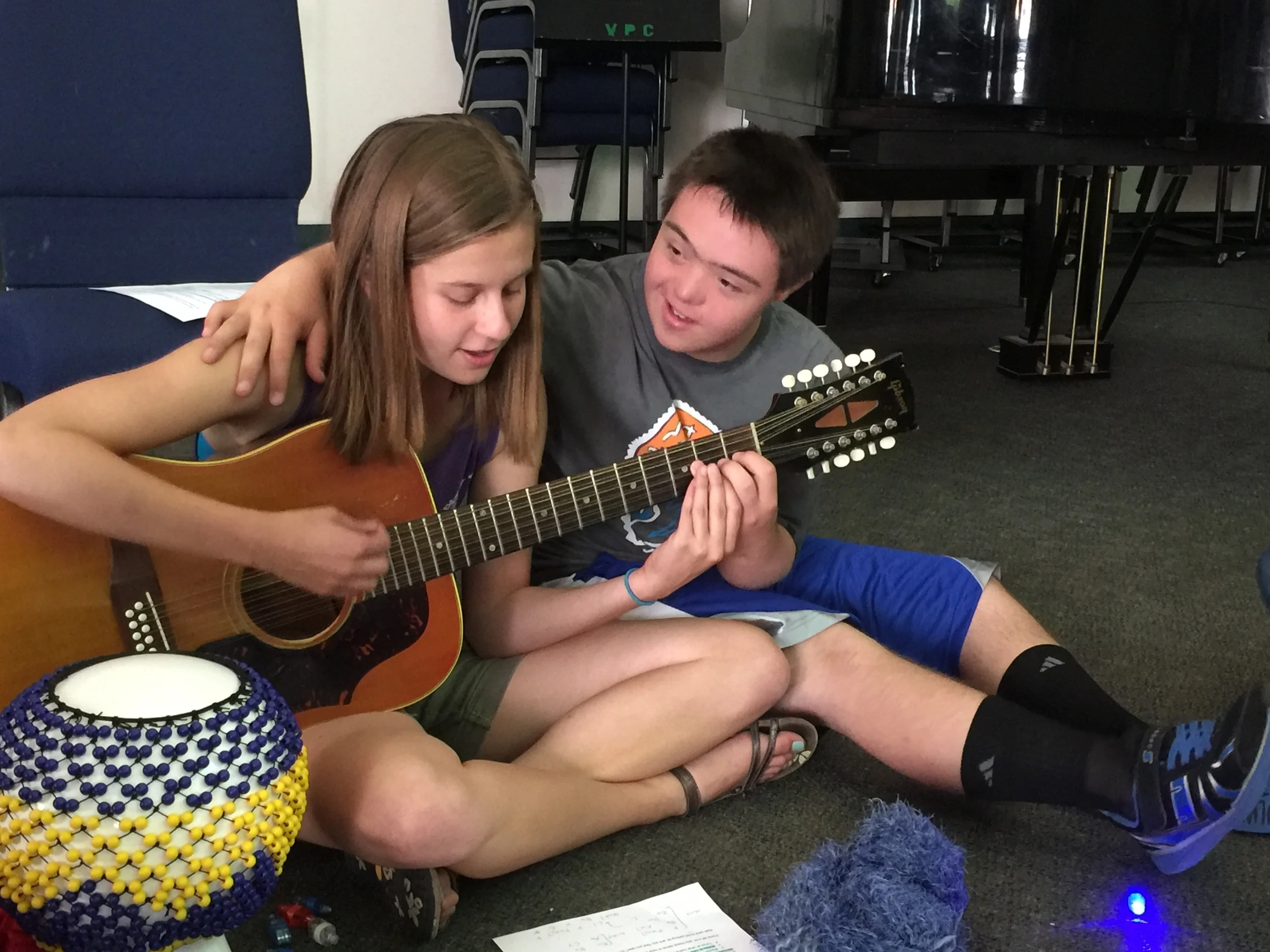A note from our Executive Director, Maddie Napel
Three years ago this September, I arrived at Northwestern University as an eager and excited freshman. Somewhere in my first few days on campus—amidst the flurry of move-in, orientation, and winter-gear shopping—I heard about Seesaw Theatre (then TSWA) and decided to get involved.
I was first motivated to join, as were many of us on Seesaw’s Executive Board, by a family connection. My brother, Walt, has cerebral palsy and has long struggled to access the performing arts because of his communication and behavioral challenges. Walt adores music and performance—knows every Eric Clapton song ever written and screams with enthusiasm when songs end climactically—but unfortunately, it is nearly impossible for my family to find live performance venues where he will be accepted for who he is.
To put it simply, the work I do for Seesaw, I do for my brother Walt. I know Walt will never attend a Seesaw Theatre workshop or production, the four-hour flight from San Francisco to Chicago being too much for him to manage, but he has always been my motivation nonetheless.
Flash forward to this spring, when Portola Valley Theatre Conservatory (PVTC) invited me to use my experience with Seesaw to pilot a new summer theater program designed to reach young people with physical and developmental differences. I was thrilled! Here was a chance to take the Seesaw model and implement it in my hometown, among the redwood trees and rolling hills of the San Francisco Bay Area. And I would do so at PVTC, within an established and successful summer camp structure and alongside a team of gifted teaching artists committed to helping young people realize their creative potential! I’ve worked there every summer of college. It’s a wonderful company (learn more at www.pvtc-ca.org). Still, the best part of this invitation: My brother, who lives in a group home nearby, would be able to participate.
PVTC’s Summer Access Group, as we named the program, met twice this July. These wonderful young people with physical and developmental differences came first on the weekend to participate in a Seesaw-esque multisensory creative drama. Our drama was about superheroes, which gave us way of exploring PVTC’s summer-long theme of empowerment. Access Group members returned to campus the following Thursday morning to attend the Relaxed Previews of Annie KIDS. and Box, the camp performances of their neurotypical peers. We called these previews “relaxed,” as we removed sudden or surprising sound effects, left the audience lights on at a low level, and invited our Access Group members and their families to enjoy themselves free from expectations of “appropriate audience behavior.”
In conjunction with this program, I taught a series of workshops on inclusion and accessibility to the young camper-performers in Annie KIDS and Box. These young people, ages 6-13, grappled with these concepts with sensitivity and maturity. With the youngest campers, we talked about how it feels to be left out on the playground and how important it is to make sure everyone feels welcome and included. We talked about the young people in the Summer Access Group who would be coming to their show on Thursday and how they might behave differently than a typical audience would. I asked these littlest campers if they could agree to be kind and inclusive, even if the behavior of the Summer Access Group seemed weird or strange. One incoming third grader exclaimed, “Of course! It’s because they’re people too, right?”
With the older campers, we discussed the timeline of disability rights activism in the United States and brainstormed lists of ways theater can be exclusive (on the basis of ability, but also on the basis of race, gender, socio-economic status, and many other identity markers). These older campers then problem-solved, generating their own interventions to make theater more inclusive. Hearing these articulate young people talk about the importance of putting more Arab American stories onstage and offering the option of gender neutral dressing rooms to young people in theater… It gave me hope.
My brother Walt walked out of the theater on Thursday morning with a huge smile on his face, signing the word “more” over and over again in ASL. It was a proud moment for me as a teaching artist, and my proudest moment ever as a sister.
Thank you to Portola Valley Theatre Conservatory and Seesaw Theatre for all you did to make this moment possible, and for all you continue to do to make the world a more inclusive place. Now on to my senior year at Northwestern and my last year with Seesaw Theatre! Let’s make it a great one.

